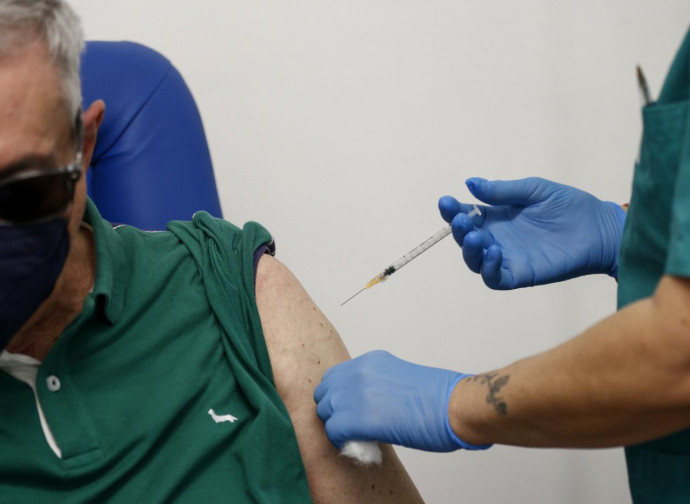Vaccines and tumours: repentant oncologist raises alarm
British professor Angus Dalgleish, luminary in the field of oncology and once an avid supporter of the development of anti-covid vaccines, has changed his mind about their efficacy. Faced with the evidence of the side effects and with great intellectual honesty, he denounces the resurgence of tumours and calls for all vaccine programmes to be suspended.

An article by notable oncologist Angus Dalgleish on the effects of covid vaccines, denounces the resurgence of tumours and calls for all vaccine programmes to be suspended. It adds to the growing pressure in the UK to debate and investigate the numerous cases of adverse effects caused by Covid vaccines. The enduring censorship of the subject by the British mainstream media gave rise to the massive protest organised by Truth be Told London on January 21, outside the BBC broadcasting headquarters to demand transparency from the British government. Here is a summary of the eminent doctor’s research.
Professor Angus Dalgleish, Professor of Oncology at St. Georges Hospital Medical School in London, is best known for his outstanding contributions to HIV/AIDS research. He is a Fellow of the Academy of Medical Sciences, a Fellow of the Royal College of Physicians, a Fellow of the Royal College of Pathologists and a Fellow of the Royal Australasian College of Physicians. He was also the research director of the biotech company, Onyvax, dedicated to the study of cancer vaccines.
Recently, the British scientist raised a worried alarm about the side effects of Covid vaccines, starting from his work as an oncologist. In fact, the professor has found an increase in the phenomenon of tumour recurrences in patients subjected to vaccination. Specifically, he reported cancer recurrence in a percentage of his patients with melanoma (a malignant tumour of the skin) that had been stable for long periods, from five to eighteen years, then flared up again. Dalgliesh also said that other oncologists have contacted him to report that they are seeing similar phenomena.
 Dalgliesh had verified what other conditions could be connected to these awakenings of tumours, and in conclusion found that all these patients had a single factor in common that could potentially trigger the phenomenon: the Covid vaccine doses, particularly after the third dose. He went on to point out that some of these patients had had an explosive recurrence, with metastases occurring simultaneously at several sites. Over a three-month period Dalgliesh was able to identify eight people who developed B-cell malignancies after the booster, with two of them reporting that they had immediately felt very ill after the booster, having had no problems after the first two vaccines. They described symptoms of extreme fatigue, diagnosed as Long Covid before being investigated and found to have B-cell leukemia in two cases, non-Hodgkin's lymphoma in five and very aggressive myeloma in the other case.
Dalgliesh had verified what other conditions could be connected to these awakenings of tumours, and in conclusion found that all these patients had a single factor in common that could potentially trigger the phenomenon: the Covid vaccine doses, particularly after the third dose. He went on to point out that some of these patients had had an explosive recurrence, with metastases occurring simultaneously at several sites. Over a three-month period Dalgliesh was able to identify eight people who developed B-cell malignancies after the booster, with two of them reporting that they had immediately felt very ill after the booster, having had no problems after the first two vaccines. They described symptoms of extreme fatigue, diagnosed as Long Covid before being investigated and found to have B-cell leukemia in two cases, non-Hodgkin's lymphoma in five and very aggressive myeloma in the other case.
Angus Dalgleish's scientific hypothesis is that the booster may have led to a large glut of antibodies at the expense of the T-cell response; in practice, the immune system is asked for an excessive response by the humoral inflammatory part of the immune response, above all against a variant of the virus that no longer exists in the community. This effort leads to immune exhaustion, which causes these patients experience a recovery of silent tumours.
Moreover, Dalgliesh, who - as mentioned above - worked for years on the development of vaccines, at the beginning of the pandemic was a convinced supporter of finding a vaccine solution to Covid. But faced with the evidence of the side effects and with great intellectual honesty, has been forced to change his mind. In addition to the recrudescence of tumours, he has in fact observed and studied other manifestations of serious side effects. In particular, he highlighted the problems in the vaccinated of platelets and coagulation factors, myocarditis and pericarditis, neurological problems, such as transverse myelitis, both now recognised as side effects of the vaccine also by the MHRA, the British drug agency.
Although it has taken some time to publish these results, they have since been delivered and widely disseminated to the British Government and various medical boards. “By the end of 2021, it was becoming glaringly evident that these vaccines were far from safe and effective and that the disease was not as problematic as it was in early 2020, when it was being made much worse with what I believed at the time were ridiculous answers,” wrote the scientist. “As the facts change, or new facts emerge, the position of all those with mandate-directing authorities should change, but unfortunately that has not been the case,” he added. But, alongside the bitterness and anger at what has happened, the determination to bring the truth out in the open and not repeat the mistakes made, is what must now prevail.
